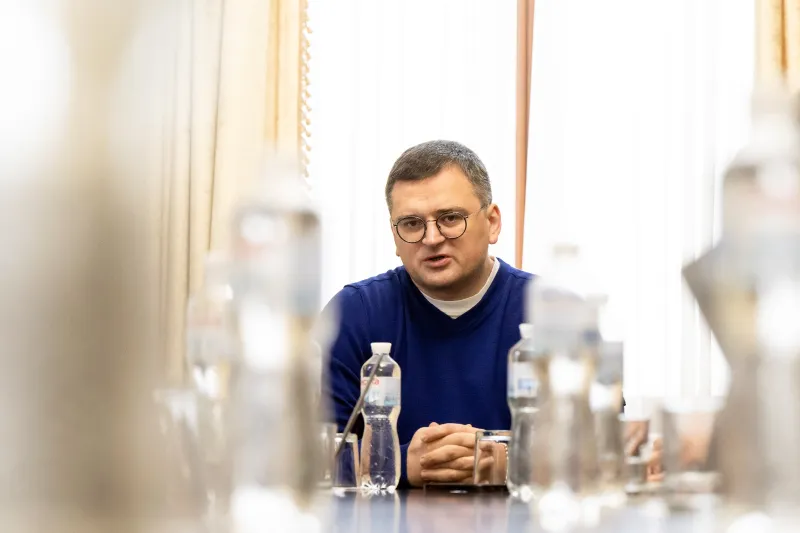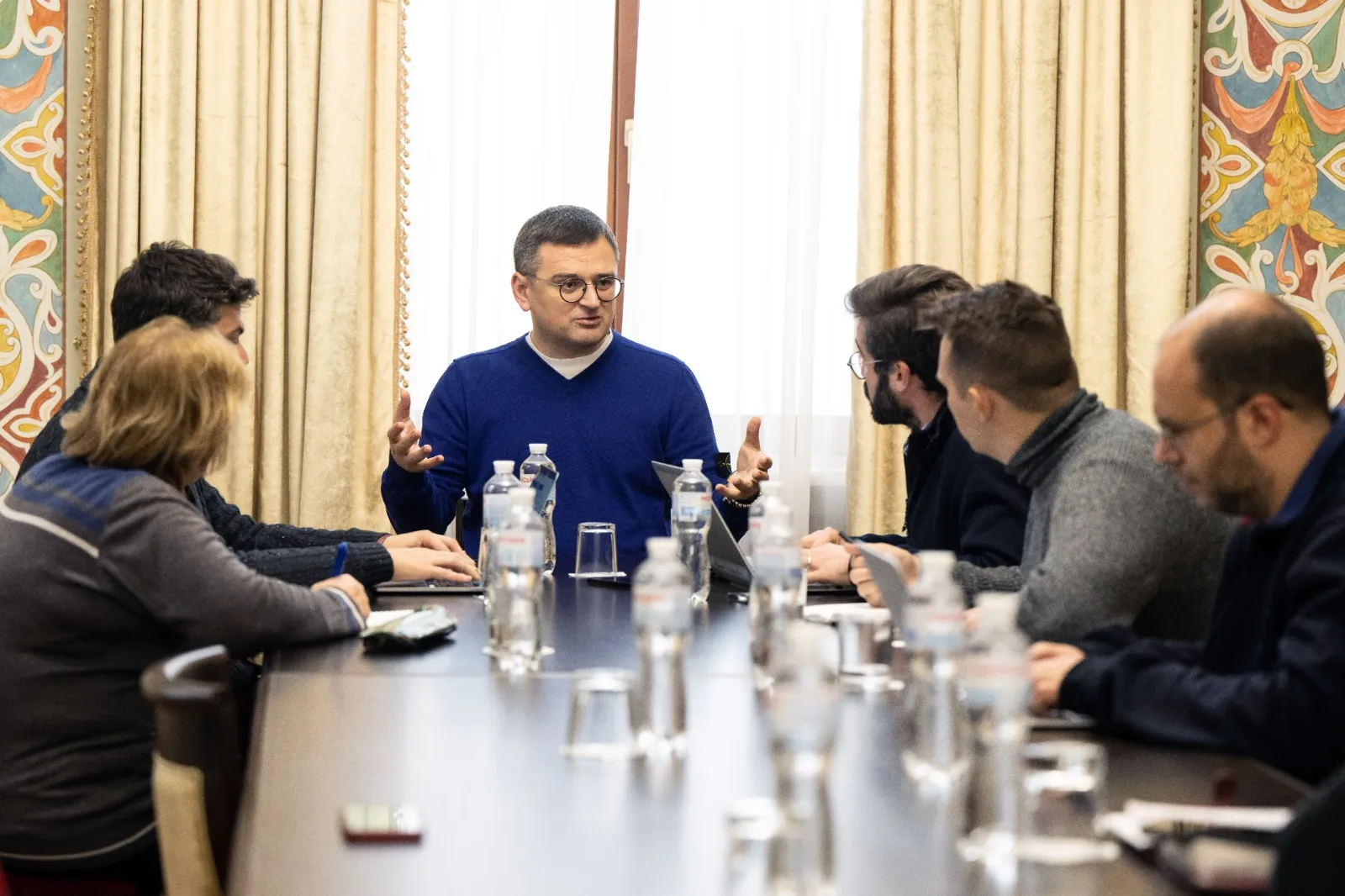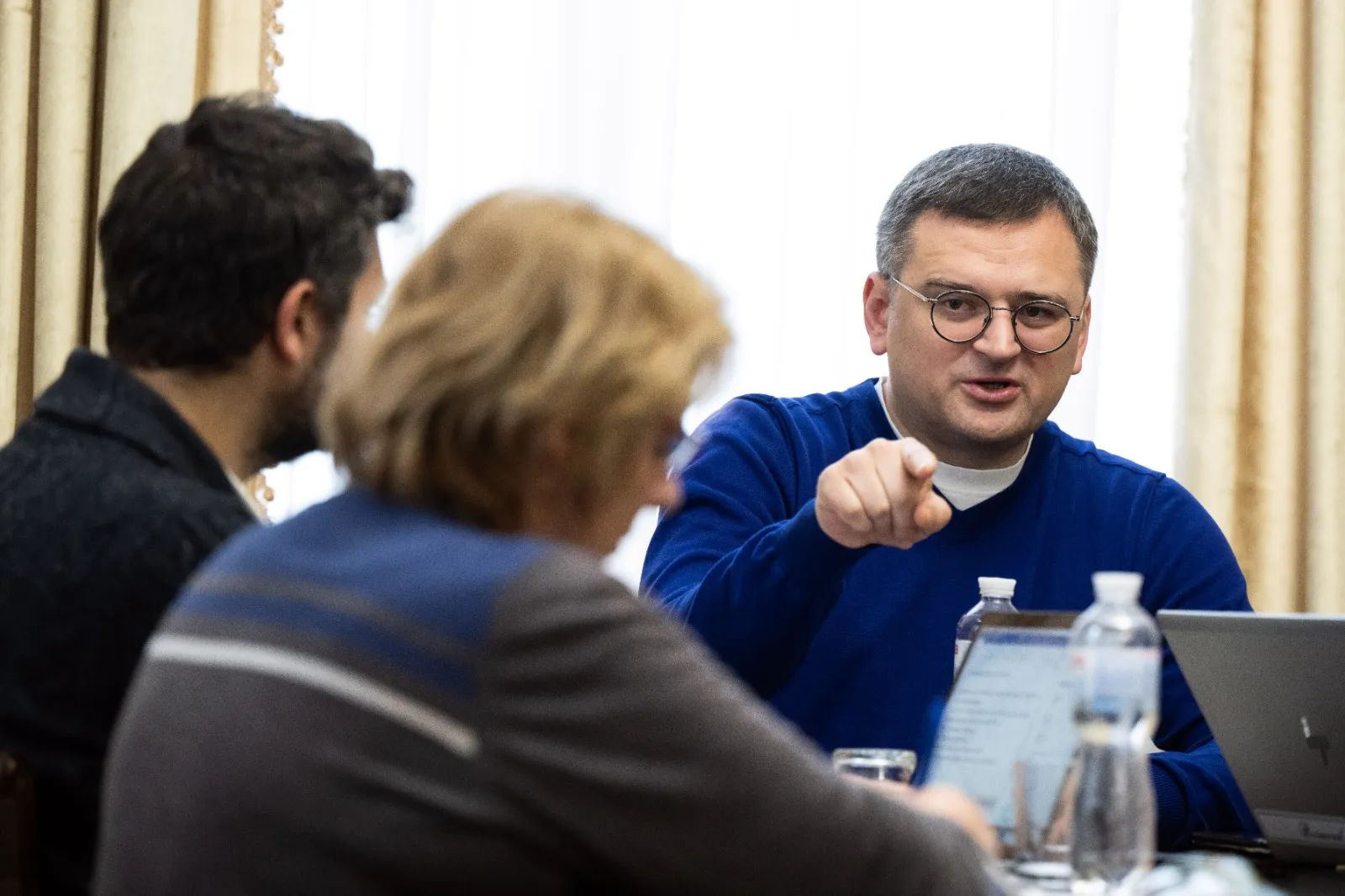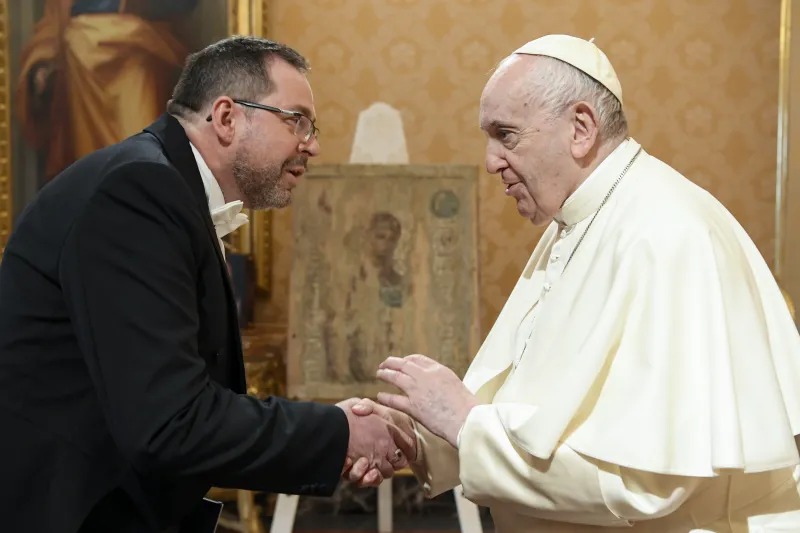
Ukraine’s foreign minister welcomes Holy See’s offer of peace negotiations, but ‘time for it has not come yet’
 Ukraine’s Minister of Foreign Affairs, Dmytro Kuleba, speaking to journalists, Dec. 9, 2022 / Marcin Mazur
Ukraine’s Minister of Foreign Affairs, Dmytro Kuleba, speaking to journalists, Dec. 9, 2022 / Marcin Mazur
Kyiv, Ukraine, Dec 10, 2022 / 00:00 am (CNA).
Every effort for peace in Ukraine coming from Pope Francis and the Holy See is welcome, Ukraine’s Foreign Minister said Friday, whether it is helping to mediate for the exchange of prisoners or in assisting migrants and refugees.
However, the time for broad negotiations after the Russian aggression has not come yet, Dmytro Kuleba told a small delegation of journalists visiting Ukraine on Dec. 9 that his country has requirements for any such mediation to eventually take place.
The interview lasted about 40 minutes, and the questions dealt with Holy See-Ukraine relations, Holy See efforts for peace, and how Ukraine would welcome this effort.
Though appreciating Pope Francis’ constant mention of the Ukrainian situation and expressing an open invitation to the pope to visit the country, Kuleba also told CNA that some of the pope’s words have been “painful” for Ukrainians.

Pope Francis has often stressed that the Holy See is available to facilitate broad negotiations. Kuleba told journalists that “the protocolar response would be that a negotiation would be more than welcome,” but “the sad truth is that the time for this broad mediation hasn’t come yet and the reason for that is President [Vladimir] Putin.”
If you want peace, Kuleba said, “you do not send 100 missiles every week to destroy infrastructure. You do not send one wave of your soldiers after another into the Donbas. You don’t do all these things when you seek a peaceful solution.”
And so, he concluded, “the day for a big mediation will come, but we are not there yet, to our deepest regret.”
Kuleba told CNA that mediation should have some requirements, as any other commitment the Holy See would undertake. He said he also tackled this issue in the last meeting with the Vatican’s Secretary for Relations with States, Archbishop Paul Richard Gallagher.
Gallagher, whose role is equivalent to that of a foreign minister, spoke with his Ukrainian counterpart on Dec. 2 in Lodz, during the OSCE Ministerial Council.
I met with Secretary for Relations with States of the Holy See Mons. Paul R. Gallagher. I briefed Archbishop on Ukraine’s efforts to alleviate the global food crisis through our #GrainFromUkraine program and details of President @ZelenskyyUa’s Peace formula. pic.twitter.com/SNAc3iGbq4
— Dmytro Kuleba (@DmytroKuleba) December 1, 2022
Kuleba said he told Gallagher that the Vatican could choose which aspect to help with.
The Vatican might help with negotiating an exchange of prisoners, for instance, or the “return of thousands of kids kidnapped from Russia,” or also participating “in the implementation of the peace formula.”
However, Kuleba added that “picking an issue is the first step, while the second step is how you address the issue,” adding that “mistakes” needed to be avoided.
Among such “mistakes,” according to Kuleba, are the notion of a brotherhood between Ukrainian, Russian, and Belarusian people.
“We are not brothers and if you insist on the concept you are misled,” the Ukrainian minister told journalists since Russians “came to Kyiv to rape, to violate all the laws of God on the land of Ukraine.”
Kuleba also said hat one cannot be “neutral in public comments” and should “always remember that Russia is the aggressor and Ukraine is the victim of the aggression.”
Any attempt at making both sides somehow evenly responsible created “a completely wrong message,” the minister warned.
In his Oct. 2 Angelus, Pope Francis appealed to Russia’s President Vladmir Putin to stop the war, and to Ukraine’s President Volodymyr Zelenskyy to be seriously open to the pope’s proposal.
Kuleba explained why he was somewhat critical of such appeals by Pope Francis: While saying President Putin should stop the war made “perfect sense,” calling on President Zelenskyy to be open to serious peace proposals made it sound like Zelenskyy was “not open to peace.”
In other words, Kuleba added, the pope’s words wrongly “create the impression that both sides are guilty: one is guilty because of the attack, and the other is guilty because [it is] not open to peace proposals.”
Ukraine’s Foreign minister called on journalists to be pay attention when writing about a “serious peace proposal” being “based on the territorial integrity of Ukraine”, including Crimea.
“Every time you write or read or say that Ukraine insists on the restoration of Crimea, you send a message that Crimea is a special case. But for us and international law, there is no difference between [the towns of] Sebastopol and Kherson, Yalta and Donetsk.”
Speaking about the role religion can play in helping to reconstruct the country, the Ukrainian foreign minister said that the “Russian aggression caused big fractures” among religions. He also pointed to differences in viewpoints between Muslims in Russia and in Ukraine, and Russian and Ukrainian Jews.
Kuleba said that the “first and foremost expectation from confessions is to console people, to help them spiritually.” Most people turned to God “only in times of hardship,” he added.
“When everything is fine, you forget about God. Now, there is a higher demand for spiritual help, to be consoled by the Church.”
Kuleba also spoke to CNA about sanctions imposed on Dec.1 against some Orthodox clerics and moves to legislate against Russian influence through religious means.

The Ukrainian government will draw up a law banning churches affiliated with Russia under moves described by President Volodymyr Zelenskiy as necessary to prevent Moscow being able to “weaken Ukraine from within,” according to Reuters.
Ukraine’s National Security and Defence Council told the government to draft the law following a series of raids on parishes that Kyiv said might be taking orders from Moscow.
Such moves, Kuleba told CNA, were motivated by “unacceptable” behavior by some clerics, such as the blessing of Russian soldiers for success on the battlefield.
Kuleba, however, praised the role of the churches, especially the presence of chaplains on the front.
Speaking about Pope Francis’ position on the Ukrainian issue, Kuleba said that he saw improvements.
“The truth,” he said, “is that this war shattered many foundations of the global political order.”
A big disappointment, he added, was what Pope Francis had said about NATO “barking” at the gates of Russia.
Kuleba stressed that he understood how and why the pope used the expression, but he noted that this argument was forged in Russia, so even mentioning served to legitimize it.
While it was “painful that the pope said something like that, I have to commend the pope for understanding”, Kuleba added, saying he was grateful to the pontiff for not sticking to “concepts that do not work and do not meet the reality check.”
Ukraine’s foreign minister said he was moved by the public prayer of Pope Francis for Ukraine on Dec. 8 in Rome. “[The] pope’s compassion means a lot to us and goes directly to the heart of Ukrainians,” Kuleba said.
He added that “obviously, we are waiting for his visit. He has many followers in Ukraine”, not only from the Roman Catholic and Greek Catholic communities: “The visit of the pope will be welcomed by a bigger part of Ukrainian society. So we are looking forward to welcoming him.”



